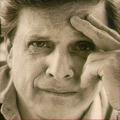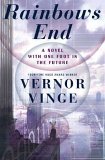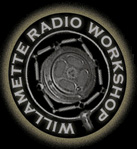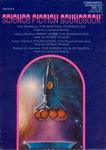
ed. – Here is a fine example of Harlan Ellison as narrator.
 City of Darkness
City of Darkness
By Ben Bova; Read by Harlan Ellison
2 Cassettes – 3 hours [UNABRIDGED]
Publisher: Dove Audio
Published: 1998
ISBN: 0787117269
Themes: / Science Fiction / City / Gangs / Environment /
This is a story about a teenager who feels New York City calling to him – “live here, live here, whatever it is, it’s here, and nowhere else”. No, this isn’t Fame. In fact, it’s much closer to John Carpenter’s Escape from New York, because Ben Bova’s Manhattan has been covered by a dome, and only opens for tourists in the summer, because of several issues, including the quality of the environment (not fit for people) and the mood of the citizens (you can’t move around in the city without being shot at).
The teenager, Ron Morgan, receives his results on tests that determine his entire future. He scores very well (extremely well), but New York beckons. His father be damned, he sneaks off to get in one last visit before giving his life to the machine. Mayhem ensues, and when the gates close for the summer, Ron finds himself locked on the wrong side. He finds the city sparsely populated by interesting characters, many of whom are young people who have split up in a way that would have made William Golding nod. Gangs rule the day, and Ron finds himself in an extremely difficult spot, with nothing to rely on other than his mechanical aptitude.
This may be my favorite Ben Bova work. He crams many of his recurring themes into this story, but social and environmental concerns rule the day here. His picture of future New York is dismal, and very much an if-this-goes-on warning. The citizens who decide to stay in the city choose to because they don’t see life in mainstream society (i.e., a lifetime in pursuit of dollars) as a better option – another thing Bova makes us consider.
Now, the story is quite good. But, what makes the audiobook great (and it is great) is the way it was read. Harlan Ellison performs the novel, and won an Audie Award for it. Ellison’s style of narration is unique in my experience. He can keep up with the best narrators in the business when it comes to accents and character creation, and then adds a story-telling touch that makes it all the more personal. His emotion isn’t limited to dialogue. He stammers when a character stammers. He’s excited when the action is intense. He is fully present while he’s narrating, and he lets himself feel and convey those feelings without waiting for dialogue to do it. It spills over, right out the earphones, and makes the story much more vivid and intense. This is a superior piece of narration – one that professionals should hear.
Posted by Scott D. Danielson







